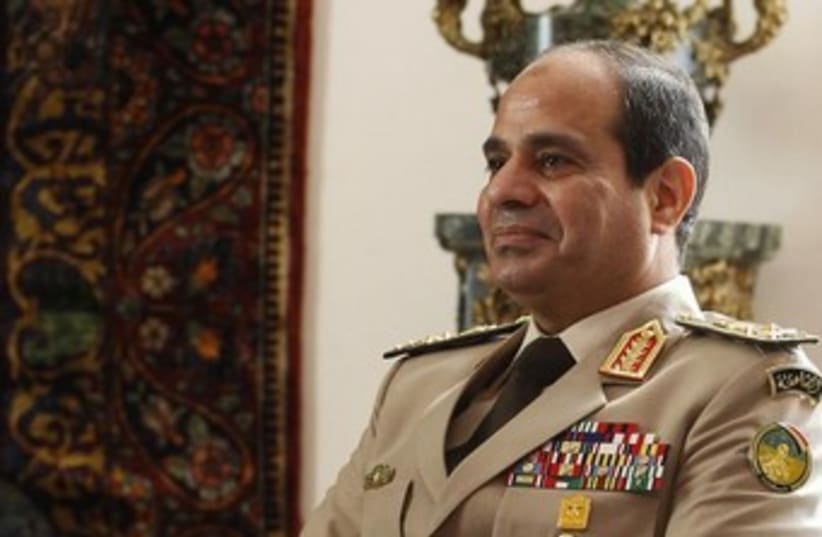- Person of the year in politics: Yair Lapid/Naftali Bennett
- Person of the year in legal affairs: David Heshin
- Person of the year in editor's pick: Avigdor Liberman
- Person of the year in Middle East diplomacy: Hassan Rouhani
- Person of the year in International Affairs: Denise Williams and the South African press
- Person of the year in Israeli diplomacy: Shimon Peres
- Person of the year in the IDF: The C4i Corps
- Person of the year in Israeli crime: The Felician family
- 'Person' of the year in energy and environment: A girl named Tamar
- Person of the year in the Syrian crisis: Israeli health care professional
- Person of the Year in US Mideast Policy: Susan Rice
- Person of the year in Israeli sports: Yarden Gerbi
Person of the year in regional affairs: Gen. Abdel Fattah al-Sisi
In 2013, Sisi stood up to domestic and international opposition to wrestle power over Egypt from the Muslim Brotherhood.
